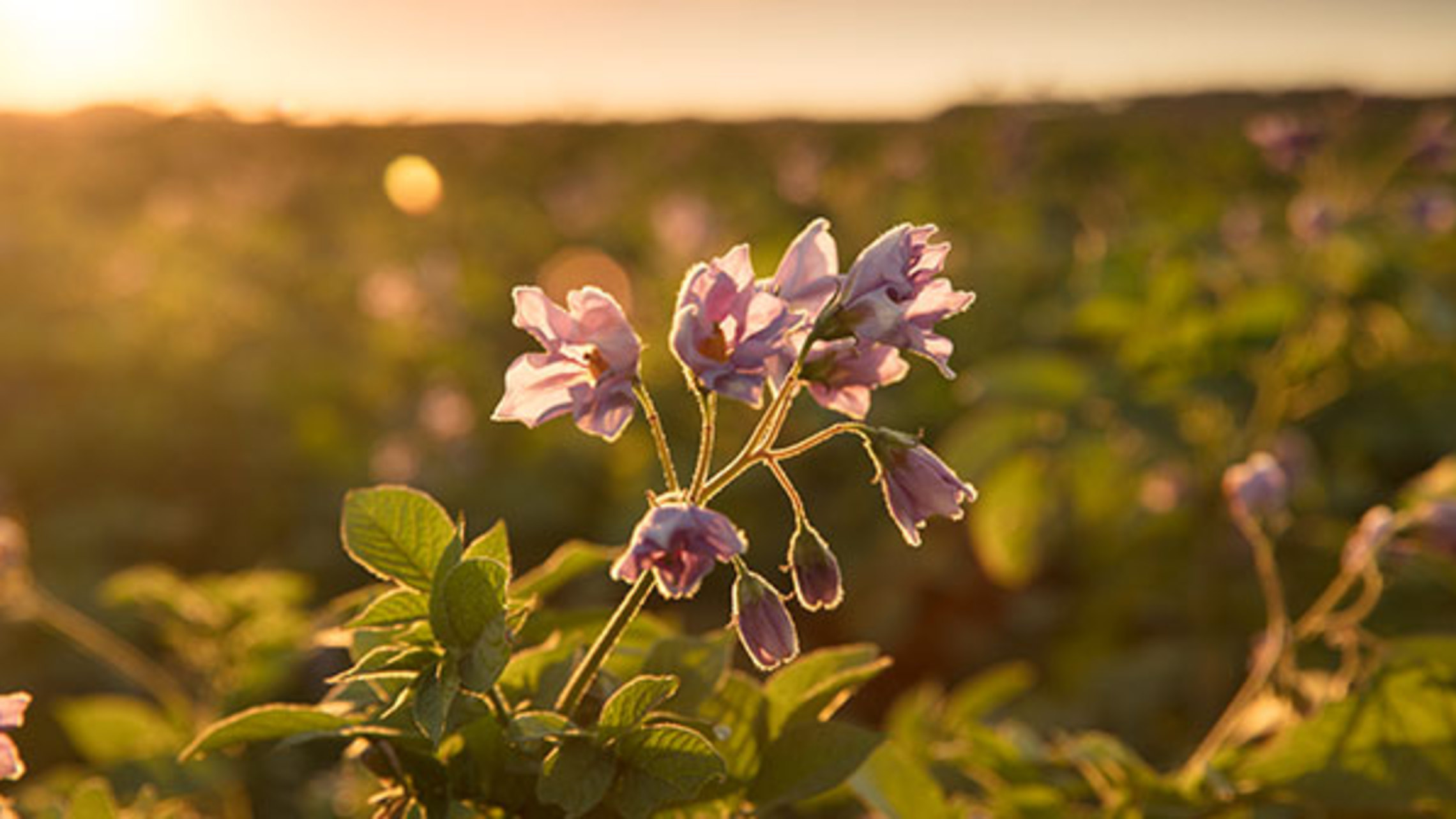Fight the blight

Plan early by adding a fungicide to a potato disease management plan
Many factors can threaten not only the quality but also the survival of a potato grower’s crop. A prime example is early blight disease. Research completed in 2013 by the University of Idaho Extension showed crop losses due to early blight can exceed 20 percent if left uncontrolled. The research also showed, in potato-growing regions, the use of fungicides can help reduce these crop losses to less than 5 percent.
With such a high risk associated with early blight, it’s better to plan early and consider fungicides in a disease management plan.
Putting the plan in action
“What is key for potato growers is to determine a fungicide plan prior to the growing season,” said Curtis Rainbolt, a BASF Technical Service Representative based in Idaho. “With a plan in place, they can make timely applications to control early blight and ultimately help prevent crop losses.”
For effective control of early blight, fungicides should be applied preventively before disease development occurs. Rainbolt recommends applying fungicides on a tight spray schedule of 5 to 14 days depending on the location and disease pressure, in accordance with the label. This is especially important in weather conditions that can be breeding grounds for disease-causing fungi. In the case of early blight, alternating periods of wet and dry favor disease production.
“Adverse weather conditions and various other issues a potato crop encounters throughout the growing season can threaten its health and yield potential,” said Rainbolt. “Growers can use fungicides within an integrated disease control program to manage disease issues they might have in their fields.”
Picking the best fungicide for the job
While using fungicides to control early blight in a potato crop, growers should be mindful of the products they choose and the management techniques they implement to fight fungicide resistance.
“One thing growers can do to fight resistance is begin their spray programs with the most effective fungicides,” said Rainbolt. “Endura® fungicide is a product we recommend growers use since it has a single mode of action (MoA) that allows for tank-mixing flexibility to manage fungicide resistance.”
Rainbolt recommends that growers use tank mixes of protectants like chlorothalonil or mancozeb-based fungicides with Endura fungicide. He also encourages growers to follow practices such as limiting the number of sprays with the same MoA and rotating different MoAs in spray programs to further manageresistance.
Growers can work with their local BASF representative to determine how fungicides can work within their integrated disease control plan. To get ahead of early blight, fungicides can be added to a grower’s disease management plan and ultimately help preserve their crop’s yield.
For more information, contact your BASF representative or visit GrowSmartPotatoes.com.
Always read and follow label directions.
Endura is a registered trademark of BASF.
© 2018 BASF Corporation. All rights reserved.
About BASF’s Crop Protection division
With a rapidly growing population, the world is increasingly dependent on our ability to develop and maintain sustainable agriculture and healthy environments. BASF’s Crop Protection division works with farmers, agricultural professionals, pest management experts and others to help make this possible. With their cooperation, BASF is able to sustain an active R&D pipeline, an innovative portfolio of products and services, and teams of experts in the lab and in the field to support customers in making their businesses succeed. In 2016, BASF’s Crop Protection division generated sales of €5.6 billion. For more information, please visit us at www.agriculture.basf.com or on any of our social media channels.
About BASF
BASF Corporation, headquartered in Florham Park, New Jersey, is the North American affiliate of BASF SE, Ludwigshafen, Germany. BASF has more than 18,200 employees in North America, and had sales of $17.9 billion in 2017. For more information about BASF’s North American operations, visit www.basf.com.
At BASF, we create chemistry for a sustainable future. We combine economic success with environmental protection and social responsibility. The more than 115,000 employees in the BASF Group work on contributing to the success of our customers in nearly all sectors and almost every country in the world. Our portfolio is organized into five segments: Chemicals, Performance Products, Functional Materials & Solutions, Agricultural Solutions and Oil & Gas. BASF generated sales of €64.5 billion in 2017. BASF shares are traded on the stock exchanges in Frankfurt (BAS), London (BFA) and Zurich (BAS). Further information at www.basf.com.
